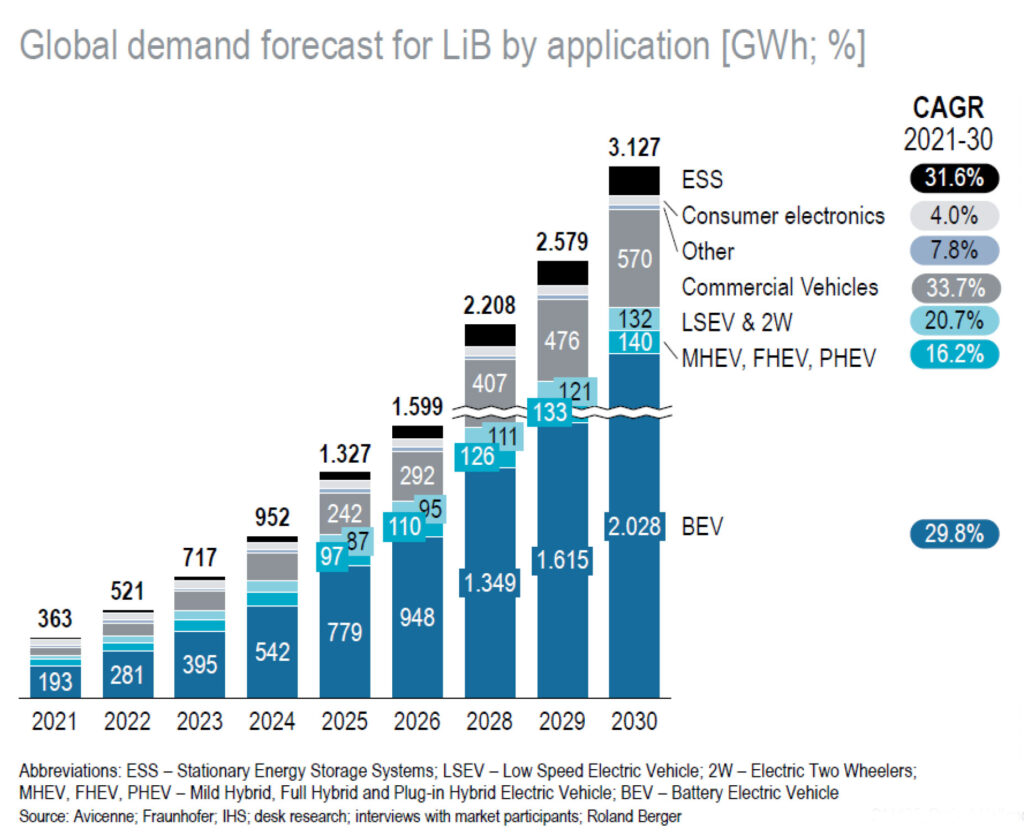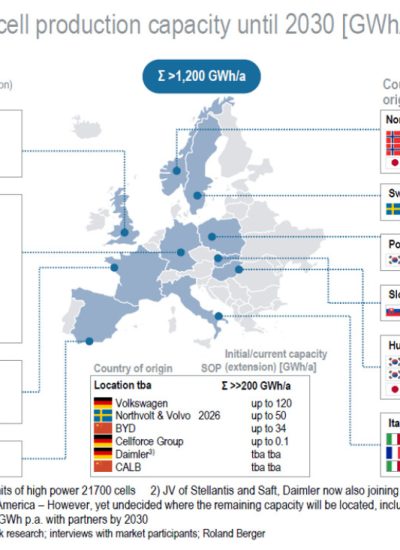Li-Ion Batteries Recycling
Recycling Baterii
Our development in the sector
Group companies in the sector:







Growth
Recycling of lithium-ion batteries is expected to grow exponentially as electric vehicles become more widespread.
Forecasts
Used batteries will overtake manufacturing waste as the leading source of recycling in the second half of the 2020s.
Our market position


Construction of the first comprehensive battery recycling factory in the EU
Elemental Group, through its subsidiary Elemental Strategic Metals (ESM), has built the first comprehensive automotive battery recycling plant in the European Union. The plant in Zawiercie, in southern Poland, is designed to process lithium-ion batteries (LIB) from electric vehicles and other waste containing precious metals. This investment is a milestone in the development of a sustainable recycling industry and underlines our commitment to building a circular economy.
Cooperation with leading research centers
As part of the project, we developed dedicated technology in cooperation with leading Polish technical universities from Wrocław and Gliwice, as well as with the Łukasiewicz Research Network – Institute of Non-Ferrous Metals. The involvement of leading global suppliers of advanced production equipment was also a key element. Thanks to this synergy of scientific knowledge and modern technologies, we created innovative solutions supporting recycling and recovery of metals in our factory in Zawiercie.
Strategic Partnership with Ascend Elements
Thanks to a joint venture with an American company, AE Elemental was established. It became the operator of a plant for recycling batteries for electric vehicles (EV) in Zawiercie. The plant will have the capacity to recycle up to 12,000 tons of batteries per year, that is about 28,000 EV batteries per year.
Financial support for the project
The project implemented by Elemental Group is co-financed by the National Centre for Research and Development (NCBR) with additional support from the European Commission.
Growth of the electric vehicle (EV) market
Batteries are a key technology in the transition to climate neutrality and a more sustainable, circular economy. They are essential for sustainable mobility and contribute to the goal of zero pollutant emissions.
The demand
In the coming years, the demand for batteries will grow rapidly, especially for electric vehicles that use batteries for propulsion.
The significance of the battery market
This market is becoming increasingly strategic at a global level, given that transport accounts for almost a quarter of greenhouse gas emissions in Europe.
Impact
Transport is a major cause of urban air pollution, further underlining the importance of developing the battery market in combating harmful emissions.
European countries and companies are significantly increasing cell production capacity to meet growing demand.
As the electric vehicle industry continues to grow, recycling is gaining attention and increasing importance. The main positive effects of recycling are saving resources, saving energy, reduced environmental impact and reduced landfill use.
Growing demand for Li-Ion batteries and the challenges of recycling
Our mission is to drive business evolution and create a lasting impact. We are dedicated to shaping the modern business landscape.
New opportunities
The increasing demand for Li-Ion batteries presents two key opportunities: recycling production waste and recycling end-of-life (EoL) batteries.
Limitations
Currently, Europe has very limited recycling capacity for Li-Ion batteries. Most existing processes are either pyrometallurgical or only partial (not covering the full recycling cycle), with low efficiency, mainly focusing on the recovery of cobalt and nickel.
Material shortages
Anode materials, electrolytes, and, in most cases, lithium are not yet widely recycled in Europe. This presents a significant challenge to the efficient management of battery waste.
Legislative initiatives
The recycling of used electric batteries is increasingly regulated by legislative initiatives, including the EU Battery Regulation, which is set to be transposed into national laws by 2024. This regulation will require a significantly higher percentage of materials to be recycled, with the ultimate goal of establishing a comprehensive battery collection and recycling system.

